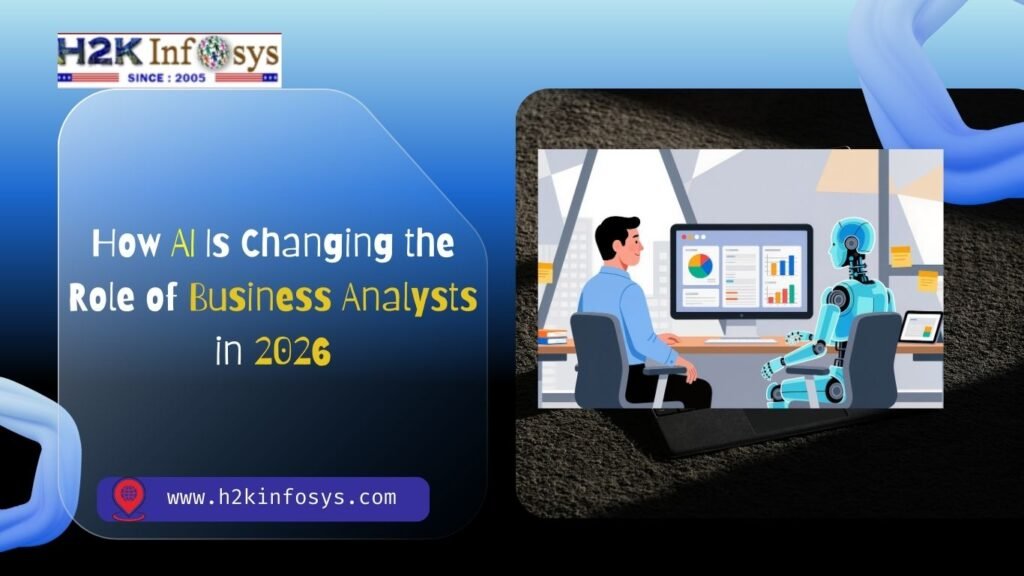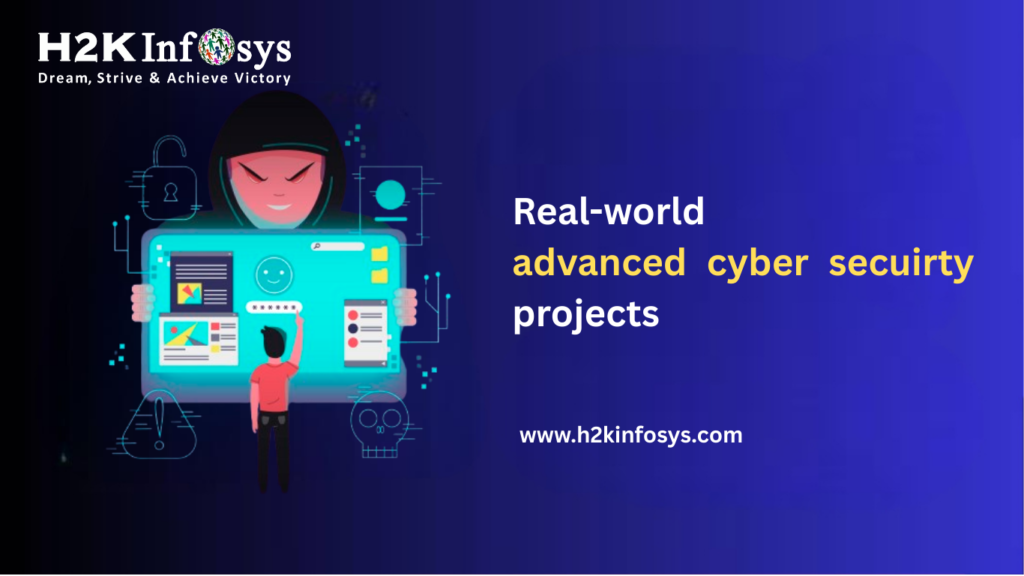Introduction
In the ever-evolving world of software development, technologies rise and fall at breakneck speed. However, Java has stood the test of time. First released by Sun Microsystems in 1995 and now maintained by Oracle, Java Certification continues to power enterprise applications, Android development, cloud solutions, and much more. Despite being decades old, Java remains one of the most widely used programming languages in the world.
Amidst a sea of modern languages and frameworks, you may wonder: Does a Java certification still hold value in today’s competitive job market? The short answer is yes and for good reason. In this post, we’ll explore why Java certification remains relevant and how it can serve as a career catalyst in 2025 and beyond.
What Is Java Certification?
Java certification is an industry-recognized credential that validates a professional’s proficiency in Java programming and related technologies. These Java Programming Certification Course usually offered by Oracle, the current maintainer of the Java language, and are categorized based on skill levels:
- Oracle Certified Associate (OCA) – Entry-level
- Oracle Certified Professional (OCP) – Intermediate to advanced
- Oracle Certified Expert/Specialist – Specialized in niche areas
- Oracle Certified Master (OCM) – Advanced professionals and architects
Each level builds on the previous one, providing a structured learning and evaluation pathway for Java developers.
Java in 2025: Still Going Strong
Despite the emergence of newer languages like Kotlin, Go, and Rust, Java remains in demand:
- TIOBE Index 2025: Java consistently ranks in the top 3 programming languages.
- Enterprise Applications: A majority of Fortune 500 companies rely on Java-based applications.
- Android Development: While Kotlin is gaining ground, Java remains a dominant language in Android development.
- Job Listings: Job portals are still flooded with listings that require or prefer Java expertise.
All this underscores one point Java isn’t going anywhere. And that makes Java certification a smart career move.

Why Java Certification Still Matters
In today’s competitive tech landscape, a Java certification remains a valuable credential for aspiring and experienced developers alike. Despite the rise of new programming languages, Java continues to dominate enterprise software, Android development, and backend systems. Earning a Java certification not only validates your skills but also demonstrates your commitment to professional growth.
Employers often prioritize certified candidates because certification indicates a strong understanding of Java fundamentals, object-oriented programming, exception handling, and frameworks like Spring and Hibernate. It helps distinguish you in the job market, especially when competing for roles like Java Developer, Full Stack Engineer, or Software Analyst.
Additionally, many certification programs are aligned with real-world applications and are regularly updated to match industry needs. Whether you’re entering the field or seeking advancement, Java certification strengthens your resume and opens doors to higher-paying roles. It’s still a smart investment in your software development career.
Structured Learning Path
Self-taught Java programmers often lack the discipline and depth required in real-world enterprise settings. Java certification offers:
- A clear and structured syllabus
- Focused learning goals
- Hands-on coding exercises
- Evaluation metrics to benchmark your skills
For beginners, this structure provides a roadmap. For experienced professionals, it helps fill knowledge gaps and solidify concepts.
Proof of Skill in a Competitive Job Market
With thousands of developers vying for the same opportunities, how do you stand out?
A Java certification:
- Validates your technical proficiency
- Adds credibility to your resume
- Gives hiring managers confidence in your skills
According to a 2024 survey by LinkedIn, certified professionals were 27% more likely to receive interview callbacks compared to non-certified candidates with similar experience.
Relevance Across Industries
The relevance of automation and QA tools like TOSCA spans across industries, making skills in this domain highly versatile and in-demand. From finance and healthcare to e-commerce and manufacturing, every sector relies on reliable software systems that must be rigorously tested for performance, security, and functionality. TOSCA’s model-based testing and automation capabilities make it ideal for ensuring consistent, high-quality results across diverse applications. Industries with strict regulatory requirements, such as banking or pharmaceuticals, particularly benefit from TOSCA’s ability to automate compliance-heavy processes. Similarly, fast-paced environments like retail or telecom use it to accelerate product releases without compromising quality.
This cross-industry demand means professionals trained in tools like TOSCA are not limited to one career path. Instead, they can pivot between domains with ease, adapting their skills to different systems and business requirements. Learning such tools expands your opportunities, making you a valuable asset in virtually any tech-driven organization.
- Finance (banking systems, risk engines)
- Healthcare (EHR systems)
- E-commerce (online shopping platforms)
- Government (secure data platforms)
- Telecommunications (network apps)
Certification gives you a passport to enter multiple industries with ease.
Higher Salary Potential
Certification often translates to better compensation. Employers are willing to pay a premium for certified talent. According to Glassdoor:
| Role | Average Salary (USD) |
|---|---|
| Java Developer (Non-Certified) | $85,000 |
| Java Developer (Certified) | $98,000 |
| Java Architect (Certified) | $120,000+ |
These numbers show that even a single certification can unlock higher salary bands and career mobility.
Preparation for Advanced Roles
Preparing for advanced roles requires more than just experience it demands continuous upskilling and a deep understanding of modern tools, processes, and methodologies. Whether you’re aiming for a senior QA analyst, test lead, or automation architect position, mastering platforms like TOSCA or earning specialized certifications shows that you’re ready for greater responsibilities. These roles often involve strategic planning, mentoring juniors, leading test automation frameworks, and ensuring quality at scale. A solid foundation in both technical skills and business logic prepares you to handle complex scenarios, lead cross-functional teams, and contribute to high-level decision-making.
Additionally, staying updated with emerging technologies like AI-driven testing or DevOps integrations gives you a competitive edge. Employers seek candidates who not only have technical depth but also a vision for improvement and innovation. Investing in advanced training signals your readiness to transition from task execution to thought leadership making you a strong contender for promotions and leadership opportunities.
Certification helps bridge the gap. Advanced credentials like Oracle Certified Master dive deep into:
- Performance tuning
- Security implementation
- Architectural design patterns
- Distributed systems
They’re excellent stepping stones to more strategic and higher-paying roles.
Demonstrates Commitment to the Craft
Pursuing certifications or mastering advanced tools like TOSCA demonstrates a strong commitment to your craft. It shows that you’re not just doing the bare minimum you’re actively investing time and effort to grow professionally. Employers and clients notice this dedication, as it reflects a proactive mindset and a willingness to stay ahead in a competitive industry. Whether you’re in QA testing, business analysis, or DevOps, continuous learning signals that you take your role seriously and strive for excellence. It also builds trust, as teams prefer to work with individuals who stay current with evolving technologies and methodologies.
Earning a certification or completing hands-on training proves that you’re not only knowledgeable but also disciplined and goal-oriented. This kind of commitment often opens doors to better job opportunities, leadership roles, and long-term career growth. In short, going the extra mile in learning and development sets you apart as a true professional.
It’s a signal that you:
- Are proactive about your professional growth
- Strive for excellence
- Are up-to-date with industry standards
Helps Non-CS Graduates and Career Switchers
If you’re coming from a non-computer science background, Java certification levels the playing field. Whether you’re transitioning from:

- Mechanical engineering
- Business analysis
- QA/testing
- Customer support
A certification proves you’ve made the effort to learn software development fundamentals and are ready for Java roles.
Better Prepared for Technical Interviews
Java technical interviews are known to be tough. Questions cover:
- Core Java (OOP, collections, exceptions)
- Multi-threading
- JDBC and database integration
- REST APIs
- JVM internals
Java certification prepares you for all of these. Many certified candidates report that their interview experience was smoother thanks to their prep work for certification exams.
Access to Global Opportunities
One of the major benefits of pursuing professional Java Developer Course such as in Java, Business Analysis, or Data Analytics is gaining access to global career opportunities. In a digitally connected world, companies across continents seek skilled professionals who meet international standards. Certification serves as proof that you possess industry-relevant knowledge and practical expertise, making your profile attractive to global employers.
Whether you’re aiming to work remotely for international clients, relocate abroad, or qualify for freelancing platforms, certification gives you a competitive edge. For example, a Java certification recognized worldwide can help you land roles in top tech hubs like the U.S., Canada, Germany, or India.
Moreover, certified professionals are often prioritized for onsite projects and cross-border collaborations. Many global firms filter candidates based on verified skills and credentials. If you’re enrolled in a career-focused training or your certification could be your ticket to working beyond borders in today’s borderless digital economy.
- Your profile stands out in international markets
- You meet visa eligibility criteria faster (especially in the US, UK, Canada)
- You can freelance or consult remotely for global clients
Certification adds global credibility to your resume.
Keeps You Updated with New Features
Staying updated with new features is essential in today’s rapidly evolving technology landscape. Whether you’re working in IT, software development, or business analysis, keeping pace with the latest tools and functionalities enhances your productivity and keeps you competitive. Regular updates often include security patches, performance enhancements, and innovative tools that can streamline your workflow. Being aware of these changes allows you to adapt quickly, make informed decisions, and leverage new capabilities to improve project outcomes. For example, knowing the latest updates in automation tools like TOSCA or platforms like Salesforce ensures you’re using the most efficient methods available.
Staying current also reduces the risk of falling behind industry standards and helps you meet evolving client or organizational needs. Subscribing to newsletters, attending webinars, or enrolling in up-to-date training courses are great ways to stay informed. In short, being proactive about new features ensures you remain relevant, agile, and ahead of the curve.
When preparing, you:
- Learn new features
- Apply them in practice questions
- Stay current with modern Java development practices
This ensures you’re not stuck using legacy approaches
Types of Java Certifications You Can Pursue
Here’s a quick breakdown of popular Oracle Java certifications:
| Certification Name | Ideal For |
|---|---|
| Oracle Certified Associate (OCA) | Beginners to Intermediate |
| Oracle Certified Professional (OCP) | Working Java developers |
| Oracle Certified Expert | Specialized skills (Web, EE, etc.) |
| Oracle Certified Master (OCM) | Senior architects and tech leads |
There are also third-party Java certifications offered by institutions and online learning platforms, but Oracle remains the gold standard.
How to Prepare for Java Certification
Preparing for Java certification is not just about memorization. Here’s a suggested strategy:
Understand the Exam Structure
Visit the official Oracle site for exam details.
Follow a Structured Course
Choose either online Java courses, books, or instructor-led training.
Join Forums
Participate in Java developer communities on Stack Overflow or Reddit.
Take Mock Exams
Simulate real testing conditions to build confidence.
Real-World Success Stories
Case Study: Priya, Junior Developer to Team Lead in 2 Years
Priya, a commerce graduate, earned her OCA certification in 2023. She got hired as a junior developer at a fintech startup. Two years later, she’s now leading a team of four Java developers and preparing for her OCP.
Case Study: Ahmed, QA Tester to Java Developer
Ahmed transitioned from manual testing to automation using Java. His certification helped him secure a developer role with a 40% salary hike.
These stories reflect what many professionals experience Java certification opens doors.
Challenges and Misconceptions
When adopting new technologies or pursuing professional certifications, many learners and professionals face a mix of challenges and misconceptions. One common challenge is the steep learning curve. Tools like TOSCA or Salesforce may initially seem complex, requiring time, hands-on practice, and proper guidance to master. Lack of real-world project exposure or practical application can also hinder understanding and confidence.
Misconceptions often discourage learners before they even begin. For instance, some believe that automation tools like TOSCA require strong programming knowledge, which is not entirely true. Many modern tools offer low-code or no-code environments designed for non-programmers. Another misconception is that certifications guarantee instant job placement. While certifications enhance credibility, practical skills, and interview readiness are equally crucial.
Time management is another hurdle. Working professionals often struggle to balance learning with job responsibilities. Without proper planning, they may lose motivation or skip essential topics. Additionally, some candidates underestimate the importance of soft skills like communication and critical thinking assuming technical knowledge alone is sufficient.
To overcome these obstacles, it’s important to choose the right training programs, set realistic goals, and actively seek mentorship or peer support. Understanding the real expectations and gradually building expertise can help dispel myths and lead to long-term career success.
- “Certifications are just paper.”
Not true when combined with practical skills, they’re powerful assets. - “Too expensive.”
OCA/OCP exams typically range from $250–$300. Many companies reimburse certification costs. - “I already have experience.”
Experience + Certification = a winning combo. Employers love both.
If you do not pass an Oracle Java certification exam, you are required to wait five days from the date of your failed exam appointment before attempting the exam again. Oracle enforces specific guidelines to govern the retake process.
Oracle Certification Exam Retake Policy
Oracle’s retake policy includes the following important rules:
- A mandatory five-day waiting period applies after a failed attempt before you can reschedule and retake the exam.
- Exams that have already been successfully passed cannot be retaken.
- Candidates are limited to a maximum of four attempts per exam within a 12-month period.
- In certain regions, some online non-proctored exams may be exempt from the waiting period.
- Each exam attempt requires a new exam voucher or must be covered by an attempt included in a certification exam learning subscription.
These policies are designed to protect the integrity of Oracle’s certification exams and ensure candidates have sufficient time to prepare between attempts. Any violation of the policy—such as attempting to retake the exam using a different Oracle Testing ID during the waiting period—may result in penalties.
Preparing for a Retake
After an unsuccessful attempt, candidates are encouraged to focus on strengthening their understanding of the core concepts rather than memorizing exam questions. Since Oracle exams draw from a large and randomized question pool, practicing with mock exams can be especially helpful in identifying knowledge gaps and improving readiness for the next attempt.
Conclusion
In 2025, Java remains a critical skill in software development, and Java certification continues to be a trusted measure of competence and credibility. Whether you’re a beginner aiming to land your first job or a seasoned developer looking to level up, certification offers structure, recognition, and career leverage.
Final Takeaway
If you’re serious about a future in Java development, a Java Certification Courses is not just relevant it’s a smart, strategic investment. It enhances your resume, boosts your confidence, opens global doors, and helps you thrive in a competitive landscape.


























